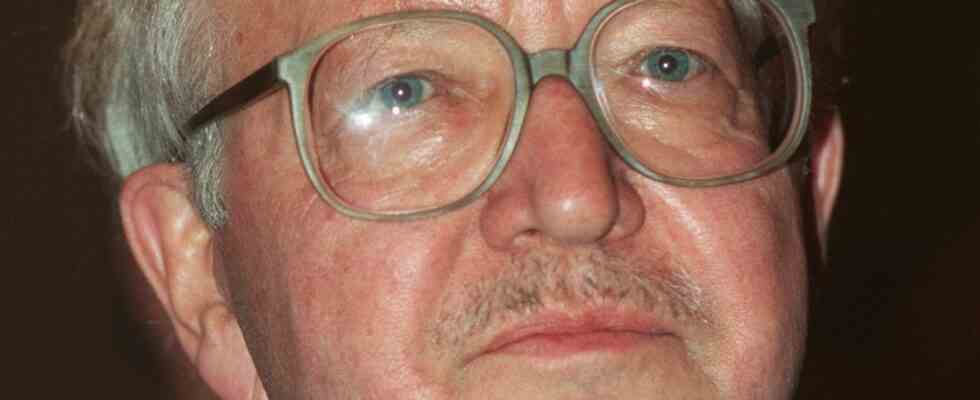In the spring of 2005, the Romance scholar, linguist and scholar Harald Weinrich published a book entitled “Short time. Art and economy of limited life”. He had been retired for seven years. Now he thought about the time that was left, not just for him, but in general. He enlisted the help of Seneca, the philosopher of inner freedom, and asked Tom Tykwer how to deal with ever-dwindling deadlines.
In the end, Harald Weinrich concluded that the popular claim that capital is the force that keeps accelerating life is only partly true. The loss of the promise of salvation is just as important: For those who no longer believe in eternal life, all time must become short. The last pages of the book are devoted to poems. In them, which as a matter of principle are products of scarcity, he found beauty, leisure, enough pause to reconcile himself with the passage of time.
After that, a lot happened. Harald Weinrich wrote a book in which the devil is civilized (2007), he wrote a cheerful little work on the language ability of animals (2008), and above all he thought about “About having” (2012). In this little book he once again took up one of his major scientific themes: using the verb “to have” he shows how a word accesses the world, how it shapes and moves ideas about the world, especially in its function as one of the two auxiliary verbs with which one can form the perfect in German. This perfect tense, he goes on to explain, is the tense of the “discussed” world, while the past tense is the tense of the “narrated” world. With the former one expresses that a past continues to have an effect in the present, with the other a world arises that is something closed. “What have you done?” Jehovah asks when Cain killed his brother Abel.
As a prisoner of war, he learned the French in which he was later able to give lectures
The book “About having” only appears to be an easy work. Harald Weinrich had his own language, precise, concise, never difficult, confident and relaxed and sometimes with a quiet cheerfulness. Anyone lucky enough to see him in a lecture will remember that he had nothing in front of him but a piece of paper with a few keywords. Then he could speak for three quarters of an hour in a clear, well-organized German – optionally also in French – and at the end leave his listeners with the certainty that he had actually learned something.
When he was asked how he did it, reference was made to the mnemonics of the ancients, according to which one had to imagine what one had to say in a spatial order. Weinrich’s most important scientific work, the book “Tempus” from 1964, had already emerged from such connections between mind and body. It deals with how concepts of time are set, starting from the physical meaning of the word “tempus”: from the “temple “, in which the ancients had seen the human organ of time.
Harald Weinrich came from Wismar. He had learned French as a prisoner of war, he had had an early and steep academic career as a Romanist, he had been one of the founders of the reform university in Bielefeld, he had published a small but influential book on the “Linguistics of Lies”. Then he came to Munich. The subject “German as a foreign language”, which he founded there, is essentially concerned with teaching foreigners and migrants. It looks at German from the outside, from the perspective of the people for whom German is to become their second or third language.
Weinrich teaches that if you want to create something new, you have to forget the old
Under his direction, the subject became a discipline of lived academic education. The two “text grammars” that Harald Weinrich wrote during the Munich years (1982 for French, 1992 for German) are manifestations of this interest insofar as they are about reversing the usual course of a grammar and not with the individual word, but with it to begin its connection.
According to Weinrich, anyone who wants to learn a language needs more than just vocabulary. He needs knowledge about structures and contexts, and he needs a literary education. Because in the literature of another language, the learner encounters a whole cosmos of meaning – aesthetic, intellectual and very close to life.
After his retirement in Munich in 1992, Harald Weinrich moved to the Collège de France in Paris. There he was the first foreigner to hold the chair for Romance languages and literature for five years. During this time he wrote another of his little books: “Lethe. Art and Critique of Oblivion” it says.
Weinrich teaches that if you want to create something new, you have to forget the old, but at the same time there is no forgetting without remembering. Because whoever remembers summarizes the past in one picture, and that is not possible without forgetting. This book, too, only seems easy, and it is a legacy that will be remembered: Harald Weinrich died on February 27 at the age of 94 in Münster, his later adopted home.

